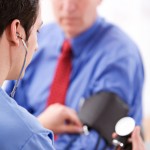 Although a lot of people may think that they know enough to be able to diagnose themselves, the truth of the matter is that you cannot really diagnose yourself as to whether you have a heart disease or not, nor can anybody else who is not actually qualified to perform a diagnosis. There is actually a lot of training needed in order for a person to acquire the skills and techniques needed to be able to diagnose a person with heart disease. Here are some things that are involved when diagnosing a person with a heart disease.
Although a lot of people may think that they know enough to be able to diagnose themselves, the truth of the matter is that you cannot really diagnose yourself as to whether you have a heart disease or not, nor can anybody else who is not actually qualified to perform a diagnosis. There is actually a lot of training needed in order for a person to acquire the skills and techniques needed to be able to diagnose a person with heart disease. Here are some things that are involved when diagnosing a person with a heart disease.
1. Medical History
One of the first things that professionals, or doctors would do when trying to diagnose you with heart disease is perform a check on your medical history in order to get a clearer picture of your present health, including all the other health-related factors that could influence your state of health. The doctor could actually rule out certain causes and possible solutions for your condition, as well as determine if further tests needs to be done on you.
2. Physical Exam
A physical examination is a pretty basic method for determining your overall health and condition. There are actually different aspects of your body that are being tested when conducting a physical exam, each one targeting different locales on your body and health. Your height and weight could be a good indicator if whether you have a higher or lower risk of developing certain risk factors that could lead to more serious heart diseases. Your vital signs are also a good indicator of your overall health, especially those that are related to your blood pressure, temperature and respiration.
3. Medical Tests
Sometimes, tests are needed to be performed in order for a proper diagnosis to be done. This means that you might need to go to certain medical facilities and centres in order to get these types of medical tests, especially if the type of test needed to be performed requires a particular machine or equipment. Although you do not necessarily have to get them immediately, there are tests that are crucial for you to take, all depending on what your doctor would require from you. For heart diseases, some of the more common tests done would be an ECG test, or an exercise electrocardiogram test, angiocardiography by radioisotopic scanning and cardiac catheterization, phonocardiography, and fluoroscopy. Each test basically targets certain heart-related issues that might appear during these tests, such as an abnormal reaction of the heart from physical stress, or if there is any irregularities in the shape or form of the heart and its components.
4. Symptoms
Another way that doctors could diagnose whether you have a heart disease or not is by means of checking your possible symptoms, as these could help indicate what type of heart disease or medical condition you are suffering from. There are actually a lot of possible symptoms, some symptoms occur with more than one condition, which is why it can be a bit difficult to base it all simply on one symptom only.
5. Risk Factors
Determining the risk factors that you might have could also help the doctors determine if you have a much higher risk of having a heart disease or not. These risk factors are actually your habits, traits, medical condition, genes and lifestyle choices that could affect your heart and how it functions. Some of these risk factors include hypertension, diabetes and eating fatty and high-cholesterol foods, just to name a few.
Selva Sugunendran has published a number of Books on Health Matters including Cardiac diseases. If you found the above article useful, then you should visit the following website to immediately download an extensively researched EBook on Multiple Health diseases including Obesity, High Blood Pressure, Cardiac Illness and Diabetes. It details the symptoms, treatments available, the interactions as well as the management and control of these diseases:
Speak Your Mind